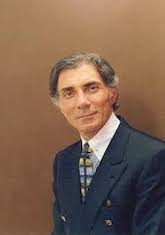
Mark B. Constantian, MD, FACS has lived and practiced in the Nashua, New Hampshire area as a plastic surgeon since 1978. He is a native of Massachusetts where his father and great-grandfather practiced medicine. Dr. Constantian is a graduate of Columbia College, and received his Bachelor of Medical Sciences degree from Dartmouth Medical School and his Doctor of Medicine degree from the University of Virginia School of Medicine.
He completed his general surgical training at the University of Virginia Hospital and Boston University Medical Center, his plastic surgery training at the Medical College of Virginia, and was certified by the American Board of Plastic Surgery in 1979.Dr. Constantian teaches regularly at regional, national, and international plastic surgery meetings, is Past President of the New England Society of Plastic and Reconstructive Surgeons, The Northeastern Society of Plastic Surgeons and The Rhinoplasty Society, a past member of the Board of Directors of the American Society of Plastic Surgeons and has been an Associate Editor of the International journal Plastic and Reconstructive Surgery. He is Assistant Clinical Professor of Surgery (Plastic Surgery) at the University of Wisconsin Medical Center.
Podcast: Play in new window | Download
Subscribe: Apple Podcasts | RSS
Hi Dr Dave, I shared a link to this show on acesconnection.com a website for people who are interested in the effect of ACEs on people and communities and how to increase their resilience.
You know, trauma and resilience really just comes down to universal human needs as per Maslow. If people have their physical needs, safety, connection, meaning and autonomy, they have resilience. If their needs are at risk, they have trauma. Trauma being a greater likelihood of their brain state going into sympathetic activation leading to anxiety and/or going into parasympathetic shutdown (submit/freeze/faint) leading to depression. Those stress states affect our immune system, blood pressure, blood sugar, mess with our digestive system and increase inflammation. Then there’s the psychological effects. As Bessel Van der Kolk says, without trauma the DSM would be a pamphlet.
Thanks for submitting this comment, Rich!